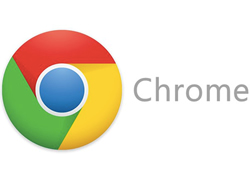Raymond Wong* says Google Chrome’s new protection against the Meltdown and Spectre bugs is likely to also slow down your computer.
 Good news!
Good news!
Google has added new safeguards to its Chrome web browser to protect you from the critical Meltdown and Spectre CPU vulnerabilities discovered in January.
The bad news: Chrome is now an even bigger memory (RAM) hog than before.
So, if your computer’s already feeling the performance pinch because it doesn’t have a bountiful amount of RAM, it’s only gonna get worse.
In a security blog post, Google details how the latest version of its browser, Chrome 67, implements a feature called “Site Isolation” to shield against Meltdown and Spectre.
Originally available in experimental versions of Chrome, Site Isolation is now enabled by default for 99 per cent of Chrome 67 users on Windows, Mac, Linux, and Chrome OS.
The extra security will arrive on Android in Chrome 68.
So how exactly does Site Isolation protect your data from being stolen?
Though Google goes into the weeds on its blog, it’s really quite simple.
Instead of using a single render process to load up a website and all of its included data, Chrome 67 splits a website’s rendering into multiple processes.
By splitting a website’s data into different rendering processes, Chrome’s essentially isolating your private information from an attacker’s website or scripts.
These additional render processes come at a cost: Chrome needs to use more RAM to create them.
Google says, “There is about a 10–13 per cent total memory overheat in real workloads due to the larger number of processes.”
That may not seem like a lot, but if you have a computer with little RAM to begin with, it could be the difference between being able to open a few more tabs in Chrome, or running multiple apps or processes.
Users with computers with, say, 4 GB of RAM will almost certainly feel the squeeze if they try to open many tabs or multi-task.
Our advice: if you can upgrade your computer’s RAM, definitely do it, especially if you’ve got a laptop.
Many laptops (like MacBooks) are non user-upgradeable these days, but do your homework and see if it is.
RAM upgrades are pretty cheap and aren’t difficult to do even for non-tech heads.
* Raymond Wong is Mashable’s Senior Tech Correspondent. He tweets at @raywongy.
This article first appeared at mashable.com.


